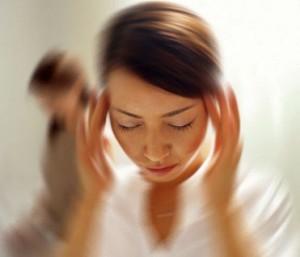The way dizziness makes you feel– such as the sensation of vertigo, a feeling of faintness or sensation as if you have actually lost your equilibrium– offer hints for possible causes.
Particular triggers, such as certain tasks or positions, could offer ideas about the underlying source of your dizziness.
Vertigo
Vertigo typically results from a sudden or short-lived modification in the activity of the balance structures in your inner ear (vestibular system) or in the equilibrium frameworks’ links into the mind. Occasionally vertigo is extreme sufficient to induce queasiness, throwing up and also balance problems. Within a couple of weeks, the physical body usually adapts to whatever is creating your unsteadiness.
Reasons for vertigo could consist of:
- Benign paroxysmal positional vertigo (BPPV): BPPV creates extreme, brief episodes of vertigo quickly adhering to a modification in the position of your head, usually when you hand over in bed or sit up in the early morning. BPPV is one of the most usual reason for vertigo.
- Irritation in the inner ear: Symptoms of swelling of your internal ear (acute vestibular neuritis) consist of the abrupt start of extreme, constant vertigo that might linger for many days, in addition to queasiness, puking and also trouble with balance.
- These signs could be so serious that you need to remain in bed. When associated with abrupt hearing loss, this condition is called labyrinthitis. Vestibular neuritis typically subsides and removes up on its very own. Yet, early clinical therapy as well as vestibular recovery treatment could be useful in speeding up recuperation.
- Meniere’s condition: This condition entails the too much build-up of liquid in your internal ear. It’s identified by sudden episodes of vertigo lasting as long as several hrs, accompanied by fluctuating hearing loss, ringing in the ear as well as a sensation of fullness in the influenced ear.
- Acoustic neuroma.: An acoustic neuroma (vestibular schwannoma) is a noncancerous (benign) growth on the vestibular nerve, which links the internal ear to your mind. Signs and symptoms of an acoustic neuroma typically include progressive hearing loss and ringing in the ears on one side gone along with by wooziness or discrepancy.
- Simply as some individuals experience an aesthetic “aura” with their migraines, others could get vertigo episodes as well as have other types of wooziness due to migraine even when they’re not having a severe frustration. Such vertigo episodes can last hrs to days and also may be connected with migraine as well as light and sound sensitivity.
Other sources. Hardly ever, vertigo could be a symptom of a more serious neurological problem such as a movement, brain hemorrhage or multiple sclerosis.
In such instances, other neurological symptoms are usually existing, such as double vision, mispronounced speech, facial weak point or pins and needles, arm or leg sychronisation, or intense balance troubles.
Lightheadedness might make you feel pale and also lightheaded without losing consciousness. Often queasiness, pale skin and also clamminess go along with a sensation of faintness.
Causes of this type of unsteadiness consist of:
Drop in blood tension (orthostatic hypotension). A remarkable come by your systolic blood stress– the greater number in your blood stress reading– may lead to lightheadedness or a sensation of fatigue. It can take place after sitting up or standing as well rapidly.
Insufficient output of blood from the heart. Particular disorders such as any one of the different diseases of the heart muscle (cardiomyopathy), an abnormal heart rhythm (arrhythmia) or a decrease in blood quantity may cause inadequate blood circulation from your heart.
Disequilibrium is the vertigo or the feeling of unsteadiness when you stroll.
Causes could consist of:
- Inner ear (vestibular) troubles. Irregularities with your internal ear could trigger you to feel like you are unsteady while entering, specifically at night.
- Physical problems. Failing vision and nerve harm in your legs (outer neuropathy) are common in older adults and might result in difficulty keeping your balance.
- Joint as well as muscle troubles. Muscle mass weak point and also osteoarthritis– the sort of joint inflammation that involves weathering of your joints– can contribute to loss of balance when it involves your weight-bearing joints.
- Neurological conditions. Numerous neurological problems could lead to modern vertigo, such as Parkinson’s illness as well as cerebellar ataxia.
- Medications. Vertigo can be a side effect of particular medications, such as anti-seizure medications, barbiturates and also tranquilizers.
Other dizzy feelings such as floating, swimming or heavy-headedness.
Other “woozy” feelings that are harder to explain could include sensation “spaced out” or having the experience of rotating inside your head.
Your medical professional could refer to this as nonspecific dizziness. Some sources consist of:
- Medicines. Blood pressure reducing drugs might cause faintness if they lesser your blood tension excessive. Many various other medicines could trigger nonspecific sensations of lightheadedness that solve when you quit the medication.
- Inner ear problems. Some inner ear irregularities could induce relentless, non-vertigo-type wooziness.
Stress and anxiety conditions. Certain anxiousness conditions, such as anxiety attack as well as an anxiety of leaving residence or being in huge, clearances (agoraphobia), might trigger unsteadiness. Often one cause– such as a vestibular condition– could produce signs and symptoms, however after that anxiousness causes your lightheadedness to persist also after your inner ear trouble has settled. - Low iron levels (anemia). Other signs and symptoms that could take place in addition to wooziness if you have anemia consist of exhaustion, weakness and pale skin.
- Low blood sugar (hypoglycemia). This disorder normally takes place in individuals with diabetes mellitus that use insulin. Wooziness might be accompanied by sweating and complication.
- Ear infections. Occasionally, ear infections can trigger unsteadiness. This sort of lightheadedness will go away when the infection clears.
Next Step Solutions!
If you’re suffering from any of the above balance & dizziness problems we can help.
Call us today to see how we can help!
410-760-1230


0 comments